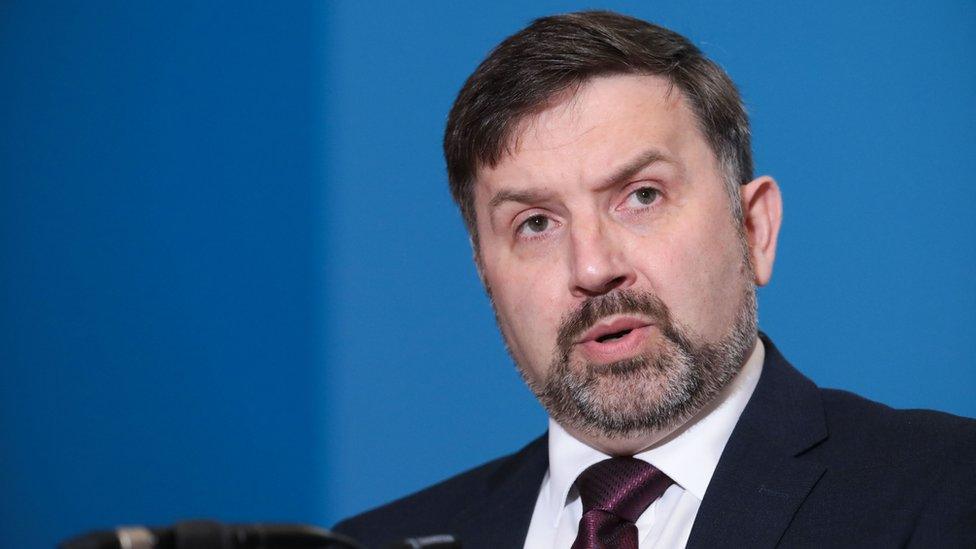Covid-19: Robin Swann warns against New Year's Eve parties
- Published
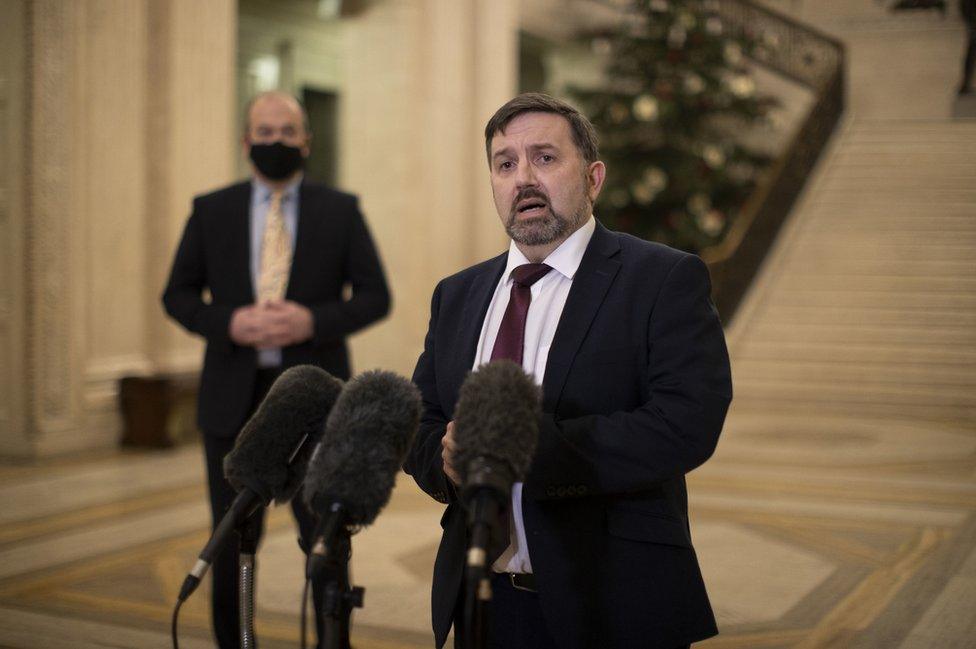
Robin Swann says parties to mark New Year's Eve could be 'super-spreader' events
Parties to mark New Year's Eve in Northern Ireland could be "super-spreader" events for coronavirus, Health Minister Robin Swann has warned.
In a message issued on Monday, he urged people to stay at home this week to prevent the spread of the virus.
He said he was asking people to "play their part" by not visiting friends during what was a "crucial period".
On Monday the Department of Health confirmed there were 20 coronavirus-related deaths in the past 48 hours.
A total of 1,634 people have tested positive in Northern Ireland in the same time-frame.
Allow X content?
This article contains content provided by X. We ask for your permission before anything is loaded, as they may be using cookies and other technologies. You may want to read X’s cookie policy, external and privacy policy, external before accepting. To view this content choose ‘accept and continue’.
Meanwhile, the Western Trust has said it is dealing with a large number of patients at its emergency departments at Altnagelvin and the South West Acute Hospital.
The trust urged people to contact the GP out-of-hours service or the urgent care and treatment centre in Omagh "if they do not require urgent medical attention".
Northern Ireland is into the third day of a six week lockdown, with strict restrictions in place.
"We need a huge collective effort against the virus," said Mr Swann as he called on people to reduce their contact with others.
"This will save lives and ease the pressures on our health service at this most challenging time," he said.
'Don't be tempted'
During the first week of the lockdown no gatherings - indoor or outdoor - are permitted between 20:00 GMT and 06:00 each day.
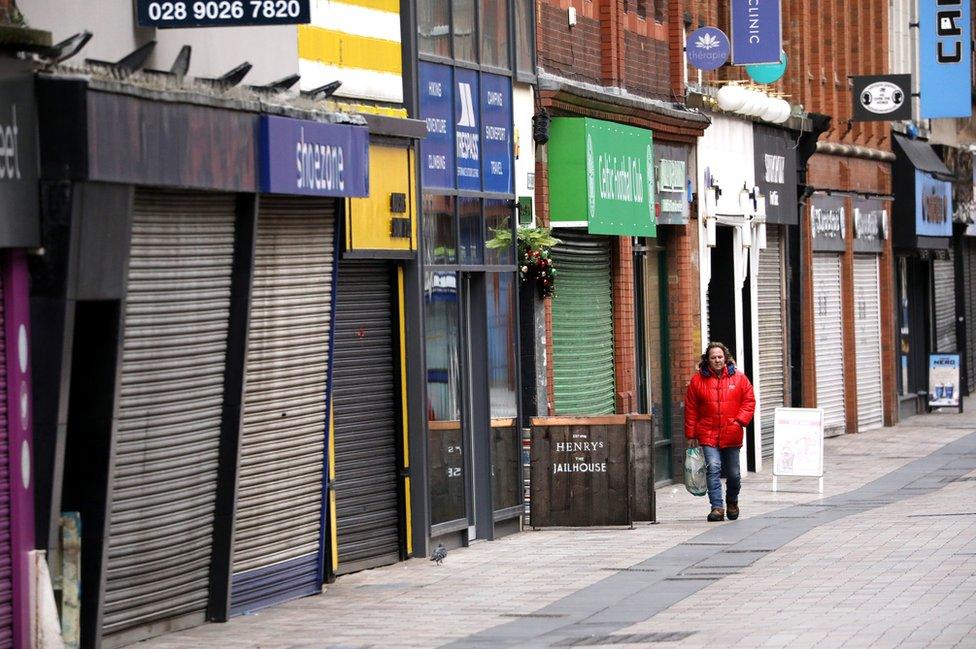
All non-essential retail shops are closed amid strict lockdown rules
The health minister said a New Year's Eve house party "would not just be against the law".
He added: "It could be a super-spreader event, could leave people very seriously ill and could even cost lives."
The minister said it was crucial that people adhere to the Covid-19 restrictions this week and throughout the remainder of the lockdown.
"Please stay at home as much as possible. Please don't be tempted to visit friends this week.
"We need a concerted and united push in the next few months to get us to a better place."
'Operating in an essential manner'
Meanwhile, police have clarified that taxi companies are allowed to operate between the curfew times for some limited purposes.
PSNI ACC Alan Todd said: "The police service understands that they need to continue to be available for essential purpose such as transporting key workers to and from work".
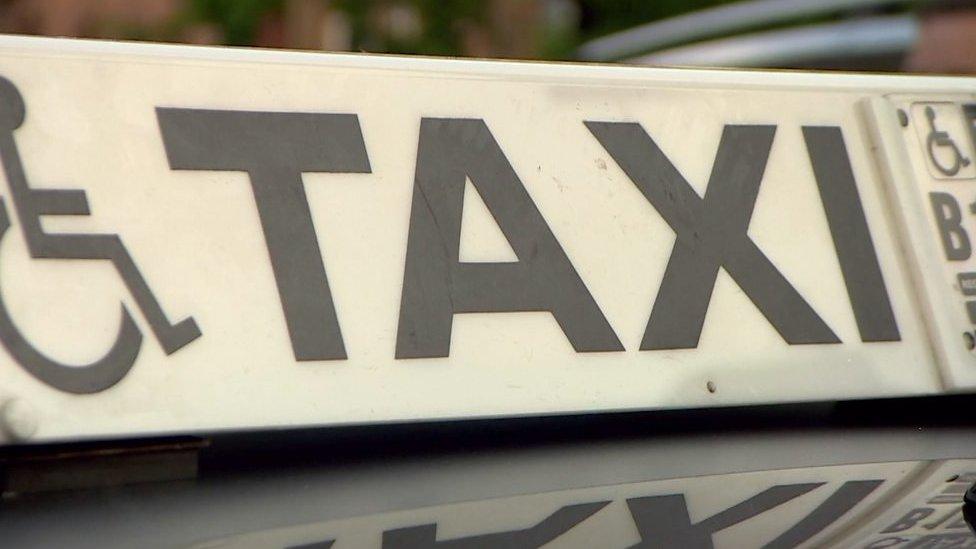
Taxi drivers say their businesses have been severely disrupted by the pandemic
No action would be taken, he explained, for drivers "clearly operating in an essential manner".
"Where this is not the case and where a taxi company or driver is operating in a manner in which they are clearly facilitating or contributing to a breach of the regulations, officers may decide to deal with such instances appropriate to those circumstances," ACC Todd continued.
Colin Neill, chief executive of Hospitality Ulster, said that the new lockdown would result in job losses across the sector.
"We didn't want it," he said, adding that members of the hospitality sector had agreed to support the executive "with a heavy heart".
"The hospitality industry cannot sustain repeated lockdown.
"We can't keep doing this and believe me, this lockdown comes with a heavy price in jobs and businesses."
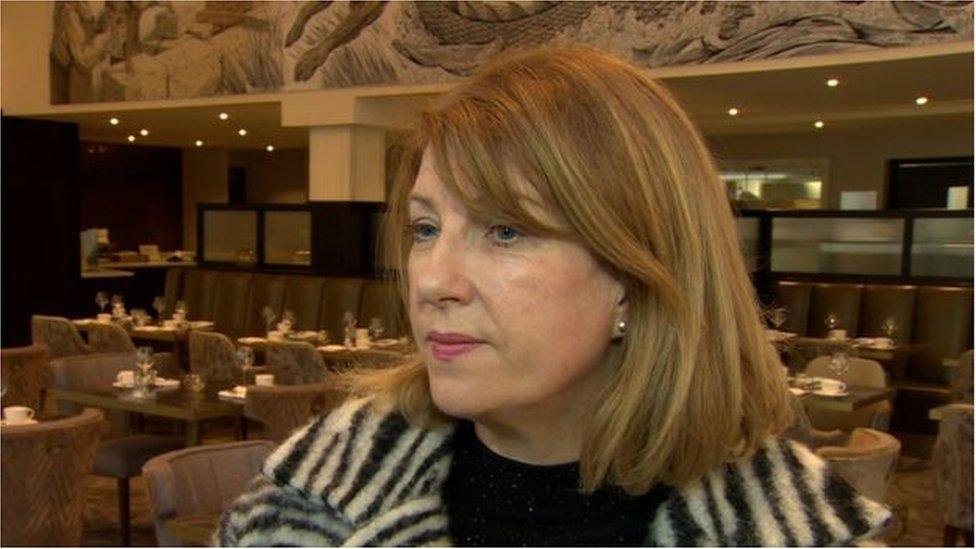
NIHF chief executive Janice Gault says the hotel sector is now entering its twenty-third week of closure
Hotels which were allowed to remain open until 28 December to "accommodate the Christmas situation" must now close under the new restrictions.
Janice Gault, who is from the Northern Ireland Hotels Federation (NIHF), has said the sector needs more financial support as it begins another lockdown.
Speaking to BBC Radio Foyle, Mrs Gault said: "We are about to start into our twenty-third week of closure, which is quite a considerable period of time.
"We are going to be closing until at least the beginning of February, and the question is will there be some support to see us through this?"
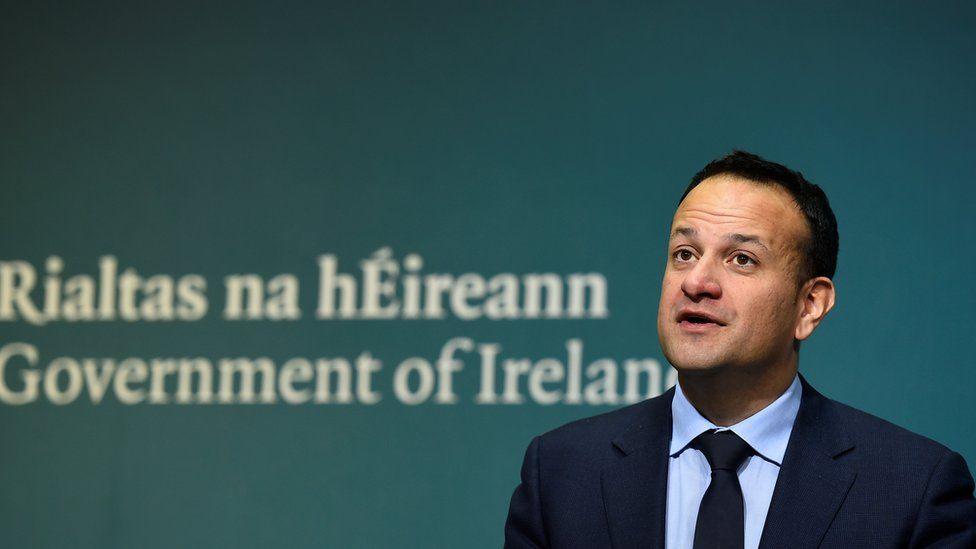
Tánaiste Leo Varadkar said restrictions should be kept in place
Meanwhile, the Republic of Ireland's deputy prime minister, Tánaiste Leo Varadkar, warned that the latest figures for coronavirus were artificially low as fewer tests were carried out on 25 and 26 December.
In an interview for Irish broadcaster RTÉ, he said restrictions should be kept in place until those most at risk had been vaccinated.
A vaccination programme is due to be rolled out in the Republic of Ireland from tomorrow, Tuesday 29 December.
The first people to receive the vaccine will be those in acute hospital settings in Dublin, Galway and Cork.
The Republic of Ireland is currently operating under Level 5 restrictions which were re-introduced on 24 December.
From 1 January, people will be asked not to have any visitors in their homes, not to travel outside their own counties and cafes and restaurants may only offer delivery and takeaway food.
Mr Varadkar said: "I think that with the vaccine now being available, I think there would be a case of saying to the Irish people that we should keep these restrictions in place until such a time as we have protected our healthcare workers and most vulnerable."
- Published26 December 2020

- Published27 December 2020
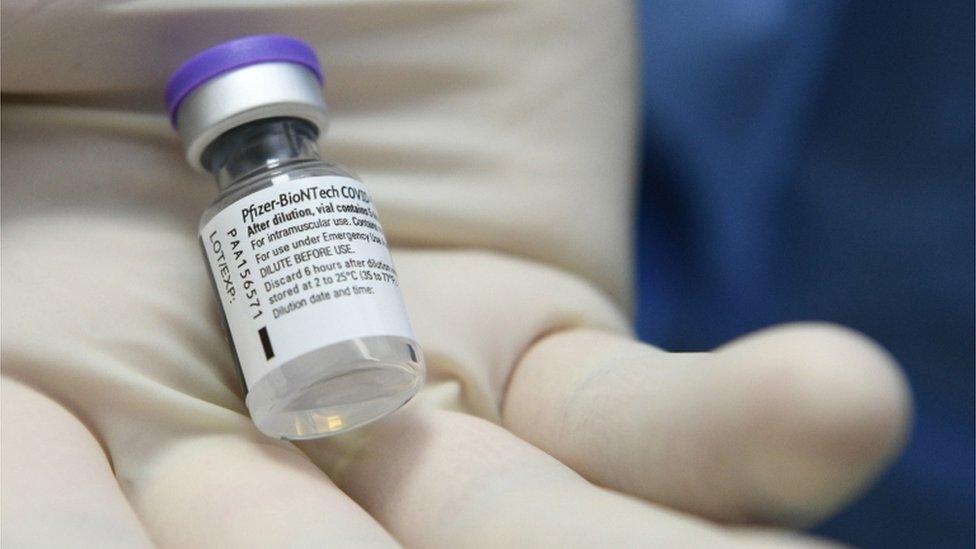
- Published23 December 2020
